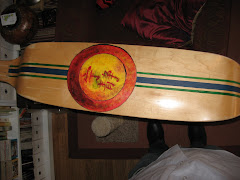I believe that writing about fiction and writing fiction each requires a knowledge of the other. In order to write about literature, one must know the jargon that goes with academic analysis, for example historical context, as well as the jargon that is associated with fiction, for example genre, plot, and characters. In order to write fiction, one must have the same writing terminology, like characters and plot, in the back of ones’ mind as he or she begins to journey through the imagination, letting it take hold of the writer in order to create in the written world.
Writing fiction has helped me to write better about fiction. I know that from the standpoint of a writer, one of the most common things a writer can do is write about what they know. In this way, I know to look at the historical, cultural, and economic significance of time, place, and history of the writer. With this, I can get a better grasp for the reasons why the writer had his characters behave a certain way, or why the time and place in the story was so important.
For my future career in teaching, I learned that history of not only the writer, but the history of the country as well, is important in understanding why a particular writer wrote what he or she did. When I begin the increasingly growing charge of teaching a class, I will take this knowledge that history plays an important part in reading and comprehending literature.
Tuesday, April 21, 2009
Subscribe to:
Post Comments (Atom)


Hey Josh,
ReplyDeleteSo i agree with what you said that as far as writing about and writing fiction, that you have to have one to have the other. I know that when i wrote my story i had to refer back to elements that i knew that referred back to my previous knowledge of fiction stories. I agree that in order to understand writing you have to have an understanding of the writer. good job
Agree with most all of your points Josh, I found your response really clear and your ideas are well thought out. Completely agree with your last point, one should understand the process of writing fiction so as to have a better understanding or grip when it comes to writing about fiction. I also really do think it’s sound that these activities taught side by side would definitely help in the comprehension and retention of the fiction writing if one were to teach it in the future. And of course, if one plans to teach something as complicated or far reaching as fiction simplifying the activity by delineated in terms of the terminology or jargon would be a sound idea otherwise students can feel lost when it comes to fiction.
ReplyDeleteGreetings Josh,
ReplyDeleteYou make some nice observations about fiction. Thinking about writing and reading fiction can be too different things, but you have connected the two ideas nicely.
I feel that it is an interesting point that you bring up all the things that inform fiction.You state that "historical, cultural, and economic significance of time, place, and history of the writer" is a good thing to look at to understand the piece. Yes, this is certainly true, and should be something that we as teachers demonstrate to the students. We need to show them how to look beyond just the words on the page.
Since you talk about history in your post, perhaps coordinating a unit or so with a history teacher would be an interesting way to investigate a text and the context behind it.
Overall, it undoubtedly will be an good experience teaching this in our future careers.
-Kevin
Hey Josh!
ReplyDeleteYou make an interesting point about the backgrounds of the authors we teach. The typical model for the last few decades has been to eschew the authorial background and focus on the text itself, but more recently teachers have pushed the "author study" before actually reading the text. Even still, I've had teachers tell me to avoid talking about the author, and others who say it’s an absolute necessity.
I agree with you, though. I think it's important to take some of the major authorial influences into account when reading a text. It doesn't necessarily have to happen before the actual reading, but it’s an important step. Authors are a product of their time, and many are commenting on it. We do that with our own writing, and, as you said, we write what we know.
See you in class!
- Morgan